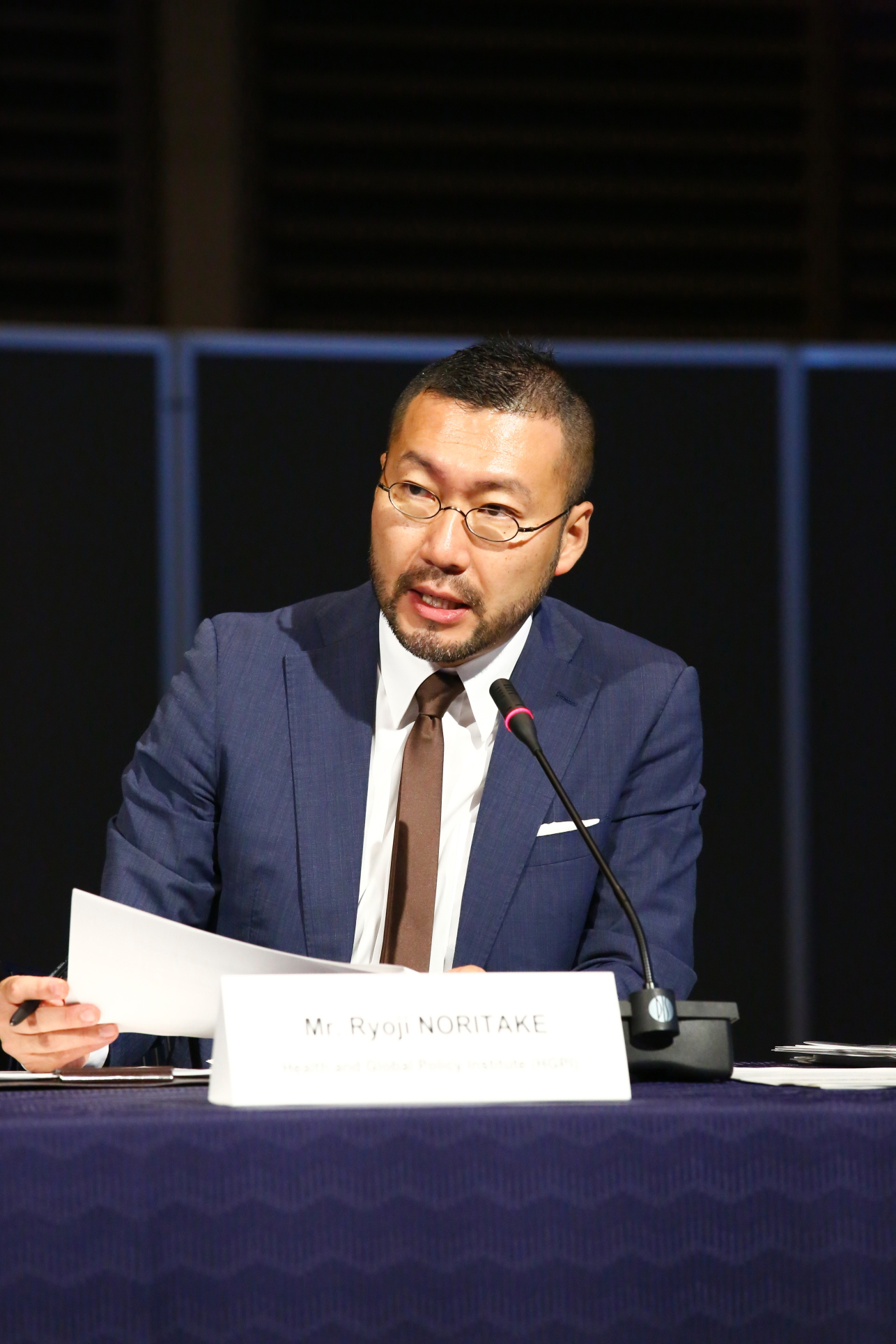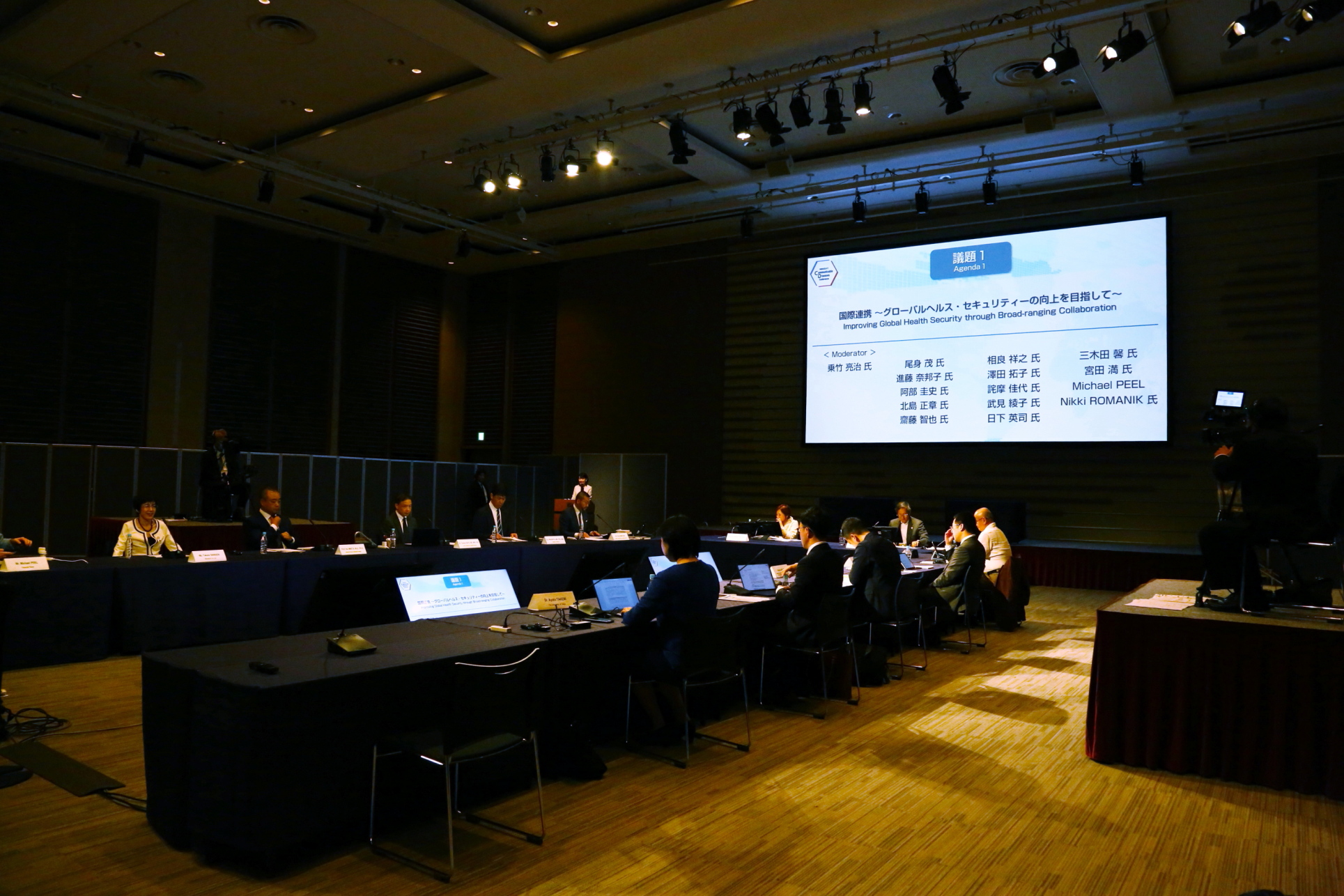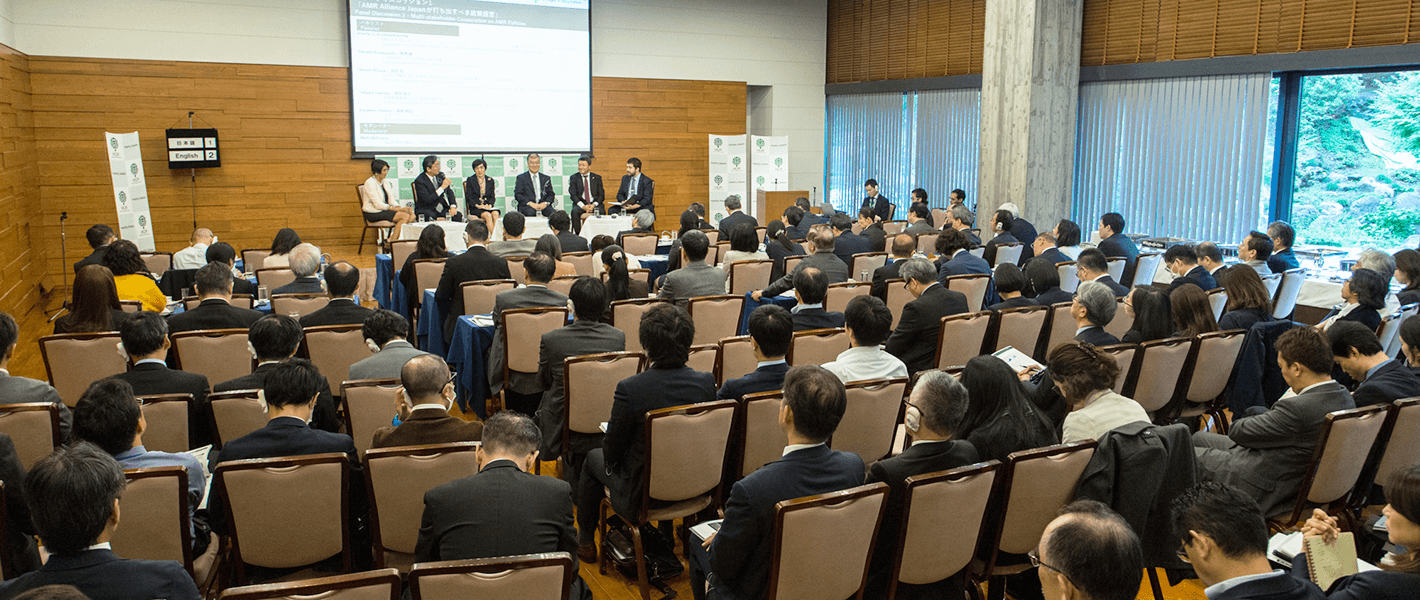[Lecture Report] The 12th NIKKEI FT Communicable Diseases Conference -What new values are required in an age of division?- “Agenda1 – Improving Global Health Security through Broad-ranging Collaboration” (Nikkei Inc., October 7, 2025, Osaka, Osaka City)
- Home >
- Information >
- Event >
- [Lecture Report] The 12th NIKKEI FT Communicable Diseases Conference -What new values are required in an age of division?- “Agenda1 – Improving Global Health Security through Broad-ranging Collaboration” (Nikkei Inc., October 7, 2025, Osaka, Osaka City)
 Health and Global Policy Institute (HGPI) Chair, Mr. Ryoji Noritake participated as the chair of the session “Agenda1 – Improving Global Health Security through Broad-ranging Collaboration” in The 12th NIKKEI FT Communicable Diseases Conference, organized by Nikkei Inc. and co-organized by THE FINANCIAL TIMES LTD.
Health and Global Policy Institute (HGPI) Chair, Mr. Ryoji Noritake participated as the chair of the session “Agenda1 – Improving Global Health Security through Broad-ranging Collaboration” in The 12th NIKKEI FT Communicable Diseases Conference, organized by Nikkei Inc. and co-organized by THE FINANCIAL TIMES LTD.
In the context of increased geopolitical risks and shifting global leadership structures, security issues surrounding emerging and re-emerging infectious diseases, including antimicrobial resistance, have become increasingly complex. These challenges extend beyond naturally occurring outbreaks to include concerns about biological weapons and potential laboratory incidents.
In Japan, opportunities for dialogue on civil-military cooperation, as well as broader collaboration among industry, government, and academia in the field of health security, have historically been limited, particularly within the post-war framework. While this approach reflects Japan’s historical experience and the importance placed on maintaining academic independence, recent shifts in international affairs and advances in infectious disease countermeasure technologies call for renewed, open discussions that transcend ideological boundaries.
Against this backdrop, “Improving Global Health Security through Broad-ranging Collaboration,” including civil-military cooperation, was highlighted as a central theme at a part of the conference. U.S. experts emphasized the importance of a whole-of-government approach, civil-military cooperation, and Japan’s leadership in this domain, while Japanese experts presented specific challenges and potential policy responses. Participants also expressed expectations for continued discussions in open and inclusive forums, noting that such dialogue contributes to democratic participation and the strengthening of civilian control.
[Overview] (titles omitted) *Regarding the affiliation, please refer to the list of lecturers for The 12th NIKKEI FT Communicable Diseases Conference.
- Date & Time: Tuesday, October 7, 2025; 9:30-11:30 JST
- Program: Agenda1 – Improving Global Health Security through Broad-ranging Collaboration
NIKKEI FT Communicable Diseases Conference Chairs
Shigeru Omi (Japan Anti-Tuberculosis Association, Chairman, Representative, Board of Director / World Health Organization (WHO), Regional Office for Western Pacific)
Nahoko Shindo (Unit Head, Bio-risk management and Biosafety, Epidemic and Pandemic Threat Management, WHO Health Emergencies Programme)
Agenda1 – Improving Global Health Security through Broad-ranging Collaboration
Moderator
 Ryoji Noritake (Chair, Health and Global Policy Institute (HGPI))
Ryoji Noritake (Chair, Health and Global Policy Institute (HGPI))
Discussers (Japanese syllabary order)
Keishi Abe (Member of the House of Representatives, Japan, Nippon Ishin (Japan Innovation Party))
Masaaki Kitajima (Laboratory of International Wastewater-based Epidemiology, School of Engineering, The University of Tokyo)
Tomoya Saito (Director, Department of Intelligence and Emergency Operations, Bureau of Health Security and Management, Japan Institute for Health Security)
Yoshiyuki Sagara (Senior Research Fellow, Institute of Geoeconomics (IOG), The International House of Japan)
Takuko Sawada (Vice-Chair, Shionogi & Co., Ltd.)
Kayo Takuma (Professor, Faculty of Law, Keio University)
Ayako Takemi (Associate Professor, Research Center for Advanced Science and Technology (RCAST), The University of Tokyo)
Eiji Hinoshita (Director General for Health and Medicine, Ministry of Defense)
Kei Mikita (Professor, Department of Global Infectious Diseases and Tropical Medicine, National Defense Medical College)
Mitsuru Miyata (CEO, Miyata Institute of Technologies,K.K.)
Michael Peel (Science Editor Financial Times)



